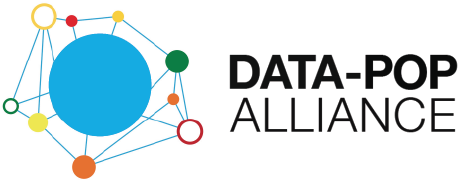HAITI
Information last updated: May 12, 2020
- Total population: 11.1 M
- Population +65 yo: 5%
- GDP Per Capita: 1,810 USD
- Informal employment: 88% (2012)
- First registered case: 19 March
- Hospital beds: 1.60 (per 1,000 people)
Sources: TheWorld Bank and WHO (Population over 65 years old, Informal employment, GDP-PPP, Hospital beds).
Status
Degree of confinement and until when: A state of health emergency was declared on March 19th for 1 month and then extended for another month, including curfew (9pm to 5am) and border closures.
Confirmed cases: 533. Deaths: 21 (May 19).
Response set up and capacity
The Ministry of Public Health and Population (MSPP) is in charge of the coordination and leadership of the response to the pandemic outbreak through its Epidemiology, Laboratory and Research Directorate (DELR).
A Preparedness and Response Plan was issued on March 10th before the first known case of Covid-19 in the territory. The plan enumerates the available hospital beds in each region (577 standard beds, 143 intensive care unit beds) and clearly identifies NGOs (national and international), civil society organizations and the press as actors of the preparedness and response efforts. The plan is budgeted for a total of 3,685,688,988,80 Haitian Gourdes, amounting to around USD 34 million. More than two thirds of the budget is directed toward the acquisition of Personal Protective Equipment (PPE) for the treatment of Covid-19 patients in isolation in hospitals.
Stakeholder Mapping
Entities / Organizations
• Ministry of Public Health and Population
• Directorate of Epidemiology, Laboratory and Research
• Scientific National Health Emergency Management Unit
• Presidency, Prime Minister and other Ministries, including the Ministry of Communication and the Center for Permanent Information on the Coronavirus (CIPC)
Additional actors
• IMF
• World Bank
• USAID
• Private sector
• National and International NGOs
• Civil society and Press
Mitigating factors - What is being done?
A State of Health Emergency has been put in place as part of the sanitary measures. These include a curfew from 9pm to 5am, closure of schools, universities and manufacturing plants, prohibition of gatherings of more than 10 people, and closure of borders. Some industries reopened on April 20th.
Amongst the socio-economic support measures put in place, the government has pledge to pay 50% of the salaries of people working in the industries that have closed, to support the poor with a food kit and a transfer of 2000 gourdes by mobile banking, to increase credit access and relax credit repayment schemes through the Central Bank, and last, have put in place a series of measures to improve the productivity of the agricultural sector.
Risks, vulnerabilities, obstacles
- High poverty rates, including lack of access to basic WaSH infrastructure and strong reliance on informal economy means that most of the population is unable to respect the prevention measures.
- Low degree of food security with a risk of a strong inflation of local food prices due to local and international travel restrictions.
- Lack of health infrastructure, including a low capacity in intensive care units.
- Mistrust in the State favors the sharing of disinformation, including on the existence of the virus. There have been protests against the sanitary measures as very few socioeconomic support measures were taken.
- High insecurity, with reported stigmatization and backlash against suspected Covid-19 cases and kidnappings. The high insecurity also affects the delivery of medical and protective equipment across the country.
Potential actions and demands
The IMF and the World Bank have released a statement urging “all official bilateral creditors to suspend debt payments from IDA countries that request forbearance.” Though most of Haiti’s debt is concessional (loans provided at very low or even zero interest rates), bilateral and multilateral donors should immediately suspend any debt servicing requirements for the duration of the pandemic. The Inter-American Development Bank has also announced a special lending facility for countries impacted by the coronavirus pandemic.
The IMF also approved US$111.6 million in emergency financing to help Haiti address the challenges posed by COVID-19 and ensure the authority have to prepare a monthly report and undertake an ex-post financial and operational audit of COVID-related operations to show how this financial support has been employed. USAID donated 13.2 million USD.
The private sector also provides financial and material support to the government.
Key resources
Contributor(s): Muller ISAAC.


